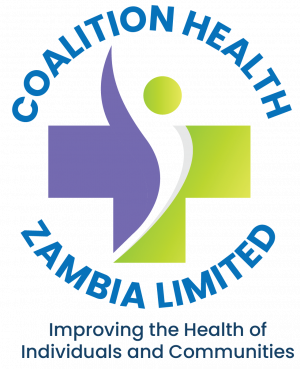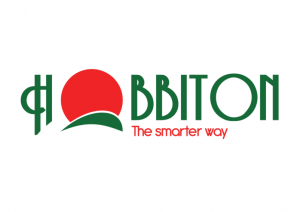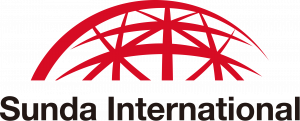JOB OPPORTUNITY: PROGRAM AND POLICY LEAD-EXTRACTIVE INDUSTRIES- INT11330.
One person in three in the world lives in poverty. Oxfam is determined to change that world by mobilizing the power of people against poverty. Around the world, Oxfam works to find practical, innovative ways for people to lift themselves out of poverty and thrive. We save lives and help rebuild livelihoods when crisis strikes. And we campaign so that the voices of the poor influence the local and global decisions that affect them. In all we do, Oxfam works with partner organizations and alongside vulnerable women and men to end the injustices that cause poverty.
As a confederation, our values are Accountability, Empowerment, and Inclusiveness.
Empowerment: Everyone, from our staff and supporters to people living in poverty, should feel they can be a catalyst for change.
Oxfam is committed to preventing any type of unwanted behavior at work including sexual harassment, exploitation and abuse, lack of integrity and financial misconduct; and promoting the welfare of children, young people and adults. Oxfam expects all staff and volunteers to share this commitment through our code of conduct. We place a high priority on ensuring that only those who share and demonstrate our values are recruited to work for us.
Note: All offers of employment will be subject to satisfactory references and may be subject to appropriate screening checks, which can include criminal records and terrorism finance checks.
Background of Oxfam
Oxfam started working in Southern Africa in the 1980s. Since then, we have implemented both development and humanitarian programmes to support practical and innovative ways for people to lift themselves out of poverty.
We work with local stakeholders to find lasting solutions to the root causes which keep people in poverty. Oxfam is currently collaborating with the Government, international and local CSOs, UN Agencies and other stakeholders.
Oxfam envisions Southern African countries to be free of extreme inequality and injustice; a society where citizens and particularly women across all age groups claim and exercise their rights and responsibilities and can influence decisions that affect their lives.
Our regional program aims to promote women’s rights, good governance and accountability, resilient livelihoods, as well as enhance preparedness, reduce vulnerability to disaster and ensure an effective response to humanitarian crises.
Background of the Extractive Industries Sector
The extractives sector is a defining feature of the SADC and sub-Saharan African economies. The region holds some of the world’s largest reserves of cobalt (DRC), copper (Zambia), platinum and gold (South Africa and Zimbabwe), coal and natural gas (Mozambique), as well as emerging deposits of critical transition minerals such as lithium and rare earths. While these resources present opportunities for revenue generation and economic growth, the sector has also been associated with stark inequalities, human rights abuses, displacement of communities, corruption, weak governance, and environmental degradation. In countries such as Mozambique and DRC, the promise of resource wealth has been overshadowed by violent conflict, illicit financial flows, and limited reinvestment in social services. Across the region, women, youth, and marginalised groups are often the least likely to benefit from extractives-led growth, yet they disproportionately bear the costs of social and environmental harm.
These dynamics are playing out at a moment of intense global scrutiny. The global energy transition has sharply increased demand for critical minerals, positioning Southern Africa as a strategic supplier in the race towards renewable energy technologies. Yet, without strong governance, transparency, and equitable benefit-sharing, the region risks replicating the “resource curse,” where resource wealth deepens inequality rather than drive inclusive development. At the same time, extractives expansion collides with climate justice concerns: communities already on the frontlines of climate change are also those experiencing land loss, pollution, and displacement linked to mining and fossil fuel projects.
Against this backdrop, Oxfam recognises the urgent need to strengthen regional advocacy, technical expertise, and coordinated action to ensure that extractive industries contribute to just, inclusive, and sustainable development. It is anticipated that the technical lead role will consolidate ongoing EI-related work across Oxfam entities and partners in the region, deepen analysis of sectoral and global trends, and support the design of effective advocacy strategies. By forging close functional working relationships across Oxfam entities, the role will help align interventions with regional strategic priorities while amplifying the voices of affected communities in regional, continental, and global policy spaces from the African Union and SADC frameworks to global debates on energy transition, corporate accountability, and climate justice.
Contract Type: Zambian National or right to work in Zambia, Fixed Term, 2 years, renewal subject to availability of funding.
Salary: National terms and conditions, competitive and negotiable within the salary ranges depending on experience, skills and competencies. This role offers scope for immense personal fulfilment – as well as outstanding opportunities to develop your career.
Location: Lusaka with some travel in Zambia and the region.
To apply and view the full job profiles, skills, knowledge and experience required for this role, please go to http://www.oxfam.org.ukuse INT11330
Closing date: Wednesday 3rd December 2025.
Only short listed candidates will be invited for interviews.
Oxfam is an equal opportunities employer; we are committed to ensuring diversity and gender equality within our organization.









